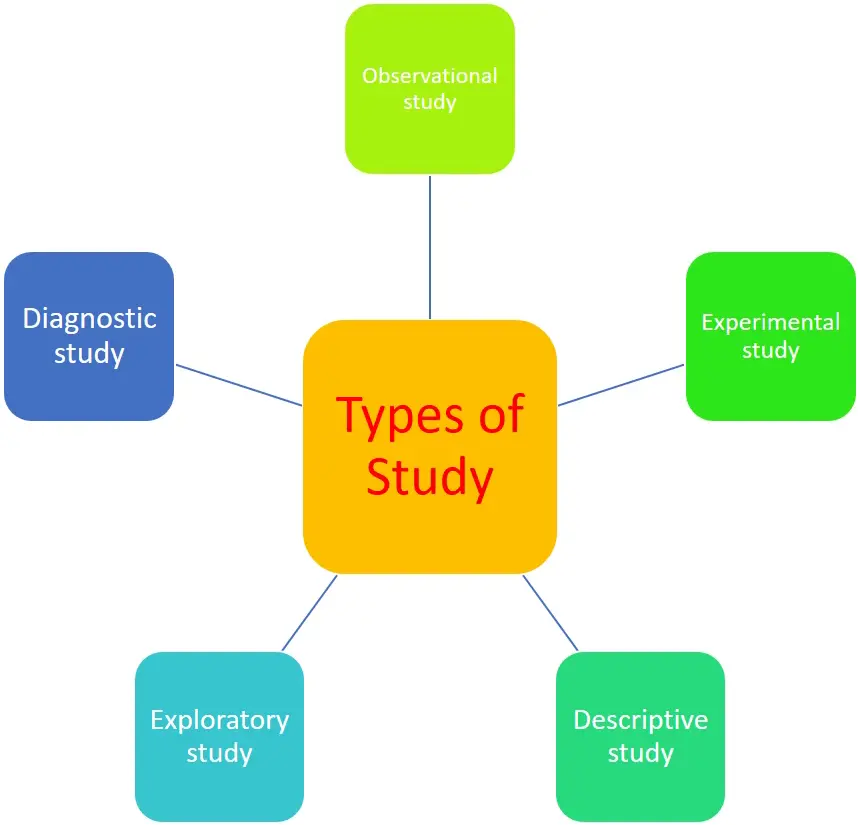
Difference Between Research and Study
Research and study are terms often used interchangeably but have distinct meanings. Understanding the difference between research and study is important, as it can help you approach your academic work more effectively.
The study refers to learning and acquiring knowledge through reading, lectures, and other forms of instruction. It involves a systematic approach to learning and often requires a significant amount of time and effort. Students engage in study to gain a better understanding of a particular subject or topic and to prepare for exams or other assessments.
On the other hand, research involves systematically investigating a particular topic or problem. It involves collecting and analyzing data and drawing conclusions based on the results. Research is often conducted to answer specific questions or to test hypotheses, and it can be used to inform policy decisions or to advance scientific knowledge.
Definition of Research
Research is a systematic and scientific investigation of a particular subject matter or problem. It collects, analyzes, and interprets data to answer a research question or hypothesis. Research can be conducted in various fields, such as science, social science, business, and technology.
Research differs from studying because it involves a more rigorous and structured approach. While studying involves learning and understanding a particular topic, research requires a more in-depth and critical analysis. Research also involves various methods and techniques, such as surveys, experiments, case studies, and observations.
One of the primary objectives of the research is to contribute to the existing knowledge in a particular field. Research findings can be used to inform policy decisions, improve products and services, and advance scientific knowledge. Research can also identify gaps in knowledge and inform future research directions.
Definition of Study
Regarding academia, “study” is often used interchangeably with “research.” However, there is a subtle difference between the two. A study systematically examines and analyzes a particular subject or topic. It involves gathering and interpreting data in order to draw conclusions or make recommendations.

Studies can take many forms, depending on the discipline and the research question being addressed. Some common studies include case studies, observational studies, and experimental studies. In a case study, a single subject or group is examined in detail, often over an extended period. Researchers observe and record behavior or phenomena without intervening in an observational study. In an experimental study, researchers manipulate one or more variables to observe the effect on an outcome.
Regardless of the type of study, the goal is always to gain a deeper understanding of the subject being examined. This may involve developing new theories, refining existing ones, or identifying practical solutions to real-world problems. A study is a rigorous and systematic process that requires careful planning, execution, and analysis.
Purpose of Research
Research is a systematic investigation of a particular topic or issue to discover new knowledge or verify existing knowledge. The research aims to answer questions, solve problems, or improve understanding of a particular phenomenon. Research can be conducted in various fields, including science, social sciences, humanities, and business.
The main purpose of research is to contribute to the advancement of knowledge in a particular field. Research can help to identify new phenomena, explain existing phenomena, or develop new theories. It can also help identify knowledge gaps and suggest areas for further investigation.
Another important purpose of research is to provide evidence-based information for decision-making. Research can inform policy decisions, guide the development of new products or services, or support clinical practice. By providing reliable, valid, and objective data, research can reduce uncertainty and improve the quality of decision-making.
Research can also help to identify and solve practical problems. By identifying the causes of a problem and testing potential solutions, research can help to improve processes, products, or services. For example, research can be used to develop new drugs, improve educational programs, or design more efficient transportation systems.
Purpose of Study
One of the main differences between research and study is the purpose for which they are conducted. While both involve acquiring knowledge, they differ in terms of their objectives and goals.
Studies are typically conducted to understand a specific topic or phenomenon better. They are often exploratory and seek to answer questions such as “what is happening?” or “what are the characteristics of this phenomenon?” Studies may also be conducted to test hypotheses or theories, but their primary goal is to understand a particular subject better.
Studies can be qualitative or quantitative in nature. Qualitative studies are typically used to explore complex phenomena and gain a deeper understanding of human behavior, attitudes, and experiences. Quantitative studies, on the other hand, are used to measure and quantify data and test hypotheses.
Overall, the purpose of a study is to gain a deeper understanding of a specific phenomenon or topic. This can be achieved through various methods, including surveys, interviews, observations, and experiments. Studies can be conducted in various fields, including psychology, sociology, education, and business.
Research Methodology
Research methodology is the systematic process of collecting and analyzing data to answer research questions or test hypotheses. It involves a series of steps researchers follow to ensure their study is valid and reliable. The following are some of the common research methodologies used in academic research:
- Experimental research involves manipulating one or more variables to observe the effect on another variable. It is often used to test cause-and-effect relationships.
- Survey research involves collecting data from a sample of individuals using questionnaires or interviews. It is often used to gather information about attitudes, opinions, and behaviors.
- Case study research involves an in-depth analysis of a single case or a small group of cases. It is often used to gain a detailed understanding of a complex phenomenon.
- Observational research: This involves observing and recording the behavior of individuals or groups in their natural environment. It is often used to gather data on behaviors that cannot be manipulated in an experimental setting.
Each research methodology has its own strengths and weaknesses, and researchers must carefully choose the most appropriate methodology for their research question. They must also ensure that their study design is rigorous and that their data collection and analysis procedures are reliable and valid.
Study Methodology
When conducting a study, the methodology used can vary depending on the study’s type. Here are a few common study methodologies:
- Observational studies: In this study, researchers observe and record participants’ behavior without intervening or manipulating any variables.
- Experimental studies: In an experimental study, researchers manipulate one or more variables to see how they affect the outcome. Participants are randomly assigned to different groups, each receiving a different treatment or intervention.
- Survey studies: This study involves gathering data from a large group through questionnaires or interviews. Researchers analyze the responses to conclude the population being studied.
When designing a study, researchers must also consider the sample size or the number of participants included. A larger sample size generally yields more reliable results but can be more costly and time-consuming to recruit and analyze.
Additionally, researchers must consider potential biases that could affect the study results. For example, selection bias can occur if participants are not randomly selected, while response bias can occur if participants provide inaccurate or incomplete information.
Overall, the methodology used in a study is crucial for ensuring the validity and reliability of the results. By carefully designing and conducting a study, researchers can draw meaningful conclusions and contribute to the body of knowledge in their field.
Types of Research
Research is a systematic and scientific approach to collecting and analyzing data to answer a specific research question. There are several types of research, each with its purpose and methodology. Here are some of the most common types of research:
Descriptive research
This type of research describes the characteristics of a particular phenomenon or group of people. It is often used to generate hypotheses or to identify patterns and trends.
Exploratory research
This type of research is conducted when the researcher needs to gain more knowledge about the subject of study. It is used to gain a better understanding of the research problem and to identify potential research questions.
Experimental research
This type of research involves manipulating one or more variables to observe the effect on another variable. It is used to establish cause-and-effect relationships between variables.
Correlational research
This type of research examines the relationship between two or more variables without manipulating them. It is used to identify the strength and direction of the relationship between variables.
Qualitative research
This type of research is used to explore and understand the meaning and experiences of individuals or groups. It is often conducted using interviews, observations, and focus groups.
Quantitative research
This type of research involves collecting and analyzing numerical data. It is often conducted using surveys, experiments, and statistical analysis.
Each type of research has its strengths and weaknesses, and the choice of research methodology depends on the research question, the nature of the research problem, and the available resources. Researchers must carefully consider the type of research that best suits their research question and design their study accordingly.
Types of Study
Studies can be classified into different types based on their objectives, design, and methodology. Here are some of the most common types of study:

Observational study
This type of study involves observing and recording the behavior of subjects in their natural environment without any intervention or manipulation. Observational studies can be classified into cross-sectional, case-control, and cohort studies.
Experimental study
This study involves manipulating one or more variables to observe the effect on the outcome of interest. Experimental studies can be classified into randomized controlled trials (RCTs), quasi-experimental studies, and single-subject designs.

Descriptive study
This type of study aims to describe the characteristics of a population or phenomenon. Descriptive studies can be further classified into case reports, case series, and surveys.
Exploratory study
This study aims to explore a new or under-researched topic or phenomenon. Exploratory studies can be further classified into qualitative, pilot, and feasibility studies.
Diagnostic study
This type of study aims to evaluate the accuracy of a diagnostic test or procedure. Diagnostic studies can be further classified into sensitivity and specificity studies, receiver operating characteristic (ROC) curve analysis, and likelihood ratio studies.
Each study type has its strengths and weaknesses, and the choice of study type depends on the research question, available resources, and ethical considerations. Researchers must carefully consider the study design and methodology to ensure the study is valid, reliable, and ethical.
Data Collection in Research
Data collection is a crucial aspect of research involving gathering information to answer research questions or test hypotheses. Data collection methods may vary depending on the research design, questions, and required data type. The most commonly used data collection methods in research include:
- Surveys/questionnaires
- Observations
- Experiments
Surveys or questionnaires are commonly used in research to collect data from many participants. Survey questions are usually closed-ended, and the responses are quantifiable. Surveys can be conducted online, by phone, or in person.
Conversely, interviews are more in-depth and can be conducted face-to-face or over the phone. Interviews are useful in collecting qualitative data, which is non-numerical data that provides insights into participants’ experiences, opinions, and attitudes.
Observations involve watching and recording the behavior of individuals or groups in their natural settings. Observations can be structured or unstructured and conducted in person or through video recordings.
Experiments are designed to test hypotheses and involve manipulating one or more variables to observe the effect on the outcome variable. Experiments can be conducted in a laboratory or the field.
Regardless of the data collection method used, it is essential to ensure that the data collected is valid and reliable. Validity refers to the extent to which the data collected measures what it is supposed to measure, while reliability refers to the consistency of the data collected.
Data Collection in Study
One of the most important aspects of a study is data collection. In a study, data is collected through various methods such as surveys, questionnaires, interviews, and observations. The collected data is then analyzed to draw conclusions and make recommendations.
Surveys and questionnaires are popular methods of data collection in studies. Surveys are used to gather information from a large group, while questionnaires are used to collect data from a smaller group. Both methods involve asking participants questions to gather information on a particular topic.
Interviews, on the other hand, are conducted on an individual basis. They are useful when in-depth information is required on a specific topic. The interviewer asks open-ended questions to gather information from the interviewee.
Observations are another method of data collection in studies. Observations involve watching and recording the behavior of individuals or groups. This method is useful when studying behavior or interactions between individuals or groups.
It is important to note that the quality of the data collected in a study depends on the accuracy of the data collection methods. Therefore, ensuring that the data collection methods used in a study are appropriate and reliable is crucial.
Data Analysis in Research
After collecting data through various methods, researchers analyze the data to derive meaningful conclusions. Data analysis is a crucial step in the research process, as it helps to identify patterns, relationships, and trends in the data.
Researchers can use different methods of data analysis, depending on the type of data collected and the research questions. Some common methods of data analysis in research include:
Descriptive statistics
This method involves summarizing the data using measures such as mean, median, mode, and standard deviation. Descriptive statistics help to provide a general overview of the data and identify any outliers or anomalies.
Inferential statistics
This method involves using statistical tests to make inferences about the population based on the sample data. Inferential statistics help determine the findings’ significance and draw conclusions about the research questions.
Content analysis
This method involves analyzing the content of written or verbal communication to identify themes, patterns, and meanings. Content analysis is commonly used in qualitative research to analyze data from interviews, focus groups, and open-ended survey questions.
Thematic analysis
This method involves identifying and analyzing patterns and themes in qualitative data. Thematic analysis is commonly used in research to explore participants’ experiences, perspectives, and attitudes.
Regardless of the method used, data analysis in research is a systematic process that involves organizing, coding, and interpreting the data. Researchers must use appropriate data analysis methods to ensure the findings are valid, reliable, and meaningful.
Data Analysis in Study
Data analysis is a crucial part of any study, as it helps to draw conclusions and make sense of the data collected. The process of data analysis involves cleaning, transforming, and modeling data to extract useful information and insights. The following are some common methods of data analysis used in studies:
This method involves summarizing and describing the main features of the data collected, such as mean, median, mode, and standard deviation.
This method involves making inferences or predictions about a population based on a sample of the data collected. It uses techniques such as hypothesis testing and confidence intervals.
Qualitative analysis
This method involves analyzing data that is not numerical, such as text or images. It is often used in social science research to understand the experiences and perspectives of participants.
Once the data has been analyzed, the researcher can conclude and make recommendations based on the findings. It is important to note that data analysis is not a one-size-fits-all process and may vary depending on the type of study being conducted.
Data analysis is critical to any study, as it helps ensure the findings are accurate and reliable. Using appropriate data analysis methods, researchers can draw meaningful conclusions and make informed decisions based on the results.
Research and study are two terms often used interchangeably, but they are not the same. While both involve acquiring knowledge, research is a more systematic and structured approach to gathering information. At the same time, study is a more general term that can refer to any learning or investigation.
Research involves using specific methods and techniques to collect and analyze data to answer a specific research question or hypothesis. The study, conversely, can refer to any type of learning or investigation, whether formal or informal, structured or unstructured.
Both research and study are important for advancing knowledge and understanding in a particular field, but they serve different purposes and require different approaches. Researchers must be skilled in designing research studies, collecting and analyzing data, and drawing valid conclusions. On the other hand, students must be able to absorb and retain information and apply it to their studies and future careers.
While research and study are different, they are both important for advancing knowledge and understanding in a particular field. By understanding the differences between these two terms, researchers and students can better appreciate the unique contributions that each makes to the pursuit of knowledge and understanding.
Related Posts

What is Research?
Characteristics of good research, leave a comment cancel reply.
Your email address will not be published. Required fields are marked *
Save my name, email, and website in this browser for the next time I comment.

IMAGES
VIDEO
COMMENTS
Research is often conducted to answer specific questions or to test hypotheses, and it can be used to inform policy decisions or to advance scientific knowledge. Difference Between Research and Study Definition of Research. Research is a systematic and scientific investigation of a particular subject matter or problem.